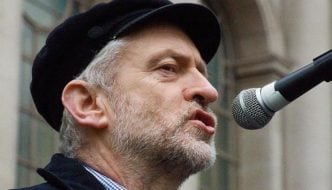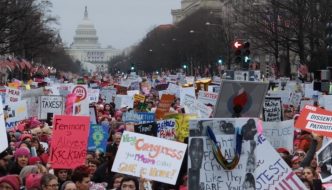
Photo: Pete Souza
In one respect at least, the political lives of the incoming and outgoing presidents are akin. Both confirm that something can still be achieved in Washington without help from the particular group of paranoids, deniers of science, and dog whistlers that has come to dominate the party of Roosevelt and Lincoln. In fact, they confirm there are at least two ways to do so, and here is where germs of disagreement emerge. The first involves working for compromise with their more moderate colleagues in repeated and tiring acts of civility. The second, publicly insulting and repudiating them until they submit, hoping you will show restraint.
Though it is Mr Trump who built his bid for the White House on the latter approach, it is Mr Obama who the Republican Party has sought to portray as a divisive leader, and one who would rather have been able to act unopposed. It is a description that now informs conventional wisdom among even the more serious figures on the European Right, despite having originated with the most unscrupulous of their American cousins.
The central claim is that Obama developed an unusual reliance on executive orders, which allow presidents to adjust legislation without congressional approval. Talking to Former House Speaker Newt Gingrich on Monday, Fox’s Sean Hannity put it thus: “Because Obama didn’t respect the constitution—separation of powers, coequal branches of government—and ruled by executive fiat, Donald Trump is going to spend the first few hours of his presidency, or at least that first week, eliminating I would argue 75% of his agenda.” The claim is worth subjecting to scrutiny, in part because it bears little, but also because it will be used to excuse Trump for behaving in just the way described when it suits him, as he has already promised to do.
From a glance at the tallies of executive orders signed by successive presidents: George W. Bush’s (291) comfortably exceeds Obama’s (276). From another few: so do those of every 20th century president bar George H. W. Bush (166), Gerald Ford (169), John F. Kennedy (214), and William McKinley (185). But these four have something further in common, namely that all were denied a full two terms (two by the electorate, two by particular electors and their firearms), and each signed more executive orders per day in office than Obama has. Grover Cleveland, who left office in 1897, was the last president who did not.
This fact is all the more remarkable given the nature of the opposition Obama has faced. To take just one example, when in response to the financial crash he moved to launch an $830bn stimulus package, he included $300bn worth of tax cuts in the hope of passing the bill on a bipartisan basis. But here’s the Senate Republicans’ Head of Policy Rohit Kumar speaking in 2015: “They would have loved our support. But on the off chance [the bill] did work, …the president was of course to get all the credit, and we would have just been sort of bystanders and perhaps a backdrop to this bipartisan roadshow.” These are the words of a man who had had the world economy in the palm of his hand. The bill eventually passed only when three Republican senators agreed to defy the party line.
Speaking before the election, Obama summarised the stated tactic of the Republican leadership: “If they cooperated with me, then that would validate our efforts. If they were able to maintain uniform opposition to whatever I proposed, that would send a signal to the public of gridlock, dysfunction, and that would help them win seats in the midterms… It turned out to be pretty smart politics.” It is an approach decided in advance by a Republican leadership whose dislike for the first black president always had a unique flavour. And it could be sustained only because so much groundwork had been done to depict him as an object of suspicion, working to undermine the strength of a country he had no right to be governing in the first place.
Take the following, proffered by Texan Congressman Louie Gohmert in the aftermath of the Boston bombings, which in its clumsy, spiteful fantasising outdoes the most imaginative theories about Obama’s birthplace or communist sympathies: “This administration has so many Muslim Brotherhood members… that they just are making wrong decisions for America.” The aforementioned Gingrich, a panjandrum of the G.O.P and by all accounts an impressive and cerebral man, once speculated that Obama can be comprehended “only if you understand Kenyan, anti-colonial behaviour.” This list could go on, and on again. Many of Obama’s most enthusiastic denouncers might not feature on it, but they ride a putrid wave generated by those who do.
Trump, for his part, has ridden it into the Oval Office, and left his party compelled to back him, if only as the footman backs the battering ram. But his dislike of free trade and conspicuous neutrality on the question of Putin’s Russia will soon test even that support. If and when he responds by attempting to govern in isolation rather than moderate his politics, he will only distinguish himself more starkly from his predecessor.
Filed under: Politics
Tagged with: Barack Obama, Donald Trump, executive order, Inauguration, Louie Gohmert, Newt Gingrich, stimulus package, United States


Comments